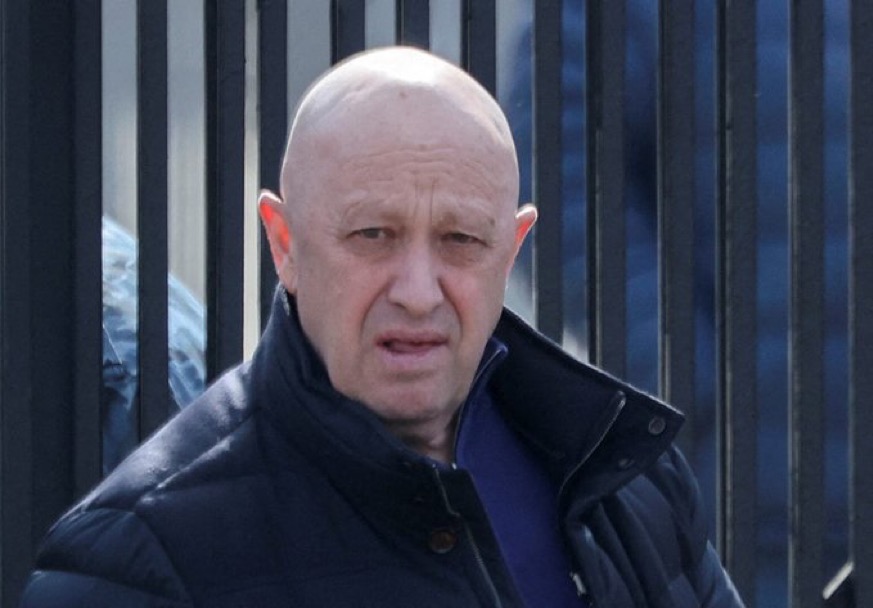In late June of this year, Russia appeared to be in the midst of an organized rebellion. Yevgeny Prigozhin, the former leader of the Russian state-funded, private military company Wagner Group, abruptly announced in a video on June 23 that “there are 25,000 of us and we are coming to sort things out… Those who want to join us, it’s time to finish with this mess.” Within 24 hours, tanks and other armored vehicles were deployed throughout Moscow as a security precaution, while Putin remarked in a televised address that the rebellion was “treason” and stated that “harsh steps” would be taken to quell the uprising. Although an agreement was made between Wagner and the Russian military apparatus by the next day, political leaders across the world were quick to pounce on the rebellion as an example of Putin’s weakness. President Joe Biden remarked that Putin was “absolutely weakened” by the mutiny while Ukrainian President Volodymyr Zelensky stated that “Russia’s weakness is obvious.”
When Prigozhin died in a plane crash alongside numerous other Wagner Group members on Aug. 23, it appeared that Putin got the last laugh in the aftermath of the failed rebellion. On a surface level, it would seem that Putin’s suffocating grip on Russia is as strong as ever as Prigozhin’s death could be seen as a warning to any domestic opposition. But looking at the current state of Russia as a whole can give credence to the idea that Putin’s leadership is much flimsier than originally thought.
While Prigozhin’s death is the elimination of a rival for Putin, it also comes with unforeseen consequences that will leave Russia weaker. With their leader deposed, the Wagner Group now has a power vacuum that could leave multiple factions competing for control of Wagner’s business empire, as well as a divide between those who support integrating with the Russian military and those who are firmly opposed to the idea. Prigozhin’s death also cut off key connections that the Wagner Group made in the African continent, with exports such as gold and diamonds coming out of Mali and the Central African Republic now stopped short. Beyond numerous countries in Africa, Wagner was reported to have had operations in Syria and Belarus, as well as Venezuela. A chaotic void of leadership and internal conflict in a Russian private military company is a foreboding recipe for a decline of Russian influence abroad.
Prigozhin’s attempted rebellion as well as his (presumed) assassination also bring up existential questions for the future of Russia and its current political system. Despite the fact that Wagner fighters helped capture significant cities in Eastern Ukraine such as Bakhumut earlier this year, Wagner troops have been “out of action” in Ukraine since Prigozhin’s rebellion, with most of them stationed in nearby Belarus or absorbed into the Russian Ministry of Defence. Because of Prigozhin’s rebellion, what was regarded as Russia’s “most effective fighting force in Ukraine” is now on the sidelines, which could potentially be a serious bane for Russia’s offensive in their military campaign. This brings up the point that Prigozhin’s short rebellion only happened because of the war in Ukraine in the first place, which Prigozhin himself called a war “based on a lie” in his speech before he commenced the rebellion.
While Russian polls say support for the war in Ukraine is still relatively high, that may change, as Russia’s economy is currently under a stranglehold of economic sanctions from western countries. The country’s biggest exports, oil and gas, have lost buyers since the war started. In regards to GDP growth, the Russian economy sank by 2.2% in 2022. The country’s population itself is declining, as one million Russians have fled the nation since the invasion began, which has caused major problems for Russia’s labor force. Out of those one million that left for greener pastures, 80% of them are estimated to be college educated, and 86% of them are under the age of 45. This has prompted many experts to call the mass exodus a “brain drain,” and it doesn’t appear to be letting up. In fact, many experts note that Russian refugees are leaving not just because of the economic fallout from the war, but the fear of being drafted themselves. When Putin announced last year he would send in reserves to fight in Ukraine, satellite images showed traffic jams at the Russian border of citizens fleeing the country. While Prigozhin’s attempt to fight against Putin’s regime could be seen as a “lightning in a bottle” event that Putin and the Russian Defence Ministry quickly resolved, the economic plight that has caused the distress and anger of everyday Russian citizens may be a sign that Putin’s regime is showing serious cracks.
In global affairs, Russia’s difficulties in Ukraine and the unrest and dissatisfaction in the country domestically are certainly being watched by allies like China. President Xi Jinping, the strongman leader of the PRC, who has openly expressed his desire for “reunification” with the small island nation of Taiwan, has remained vague about his hopes for a resolution to the war in Ukraine. As the superpower of China expressing desire to invade Taiwan can be compared to Russia invading the much smaller country of Ukraine, one can assume that China is observing the difficulties Russia is having in Ukraine, and the unrest domestically. With this in mind, perhaps China, and numerous other nations, see the toll the invasion is taking on Russia’s global reputation and its citizens, and realize that invading a smaller country simply because “it belongs to you” is not an effort worth undertaking
Ben Oppenheimer, FCRH ’24, is a film and television major from Hempstead, N.Y.














































































































































































































